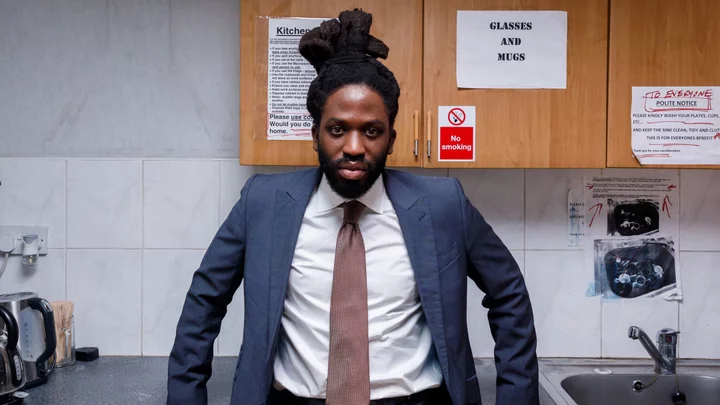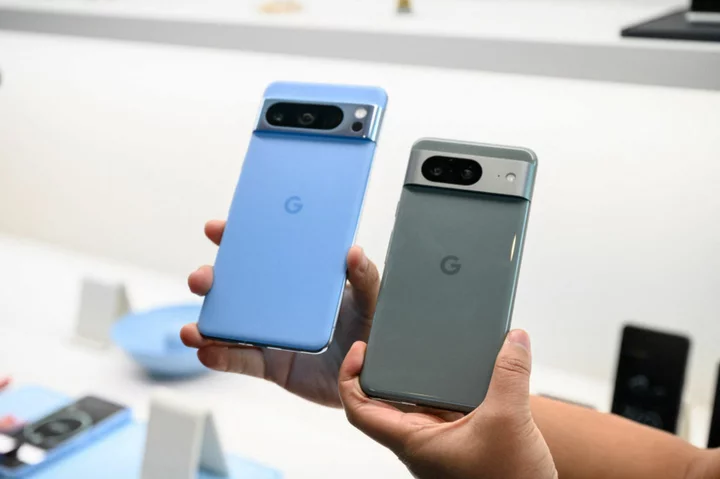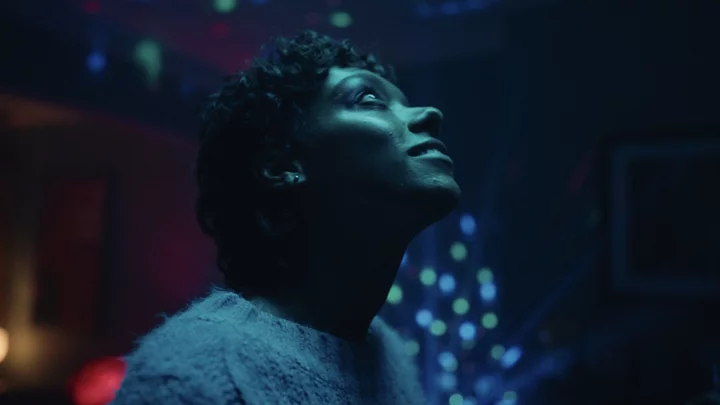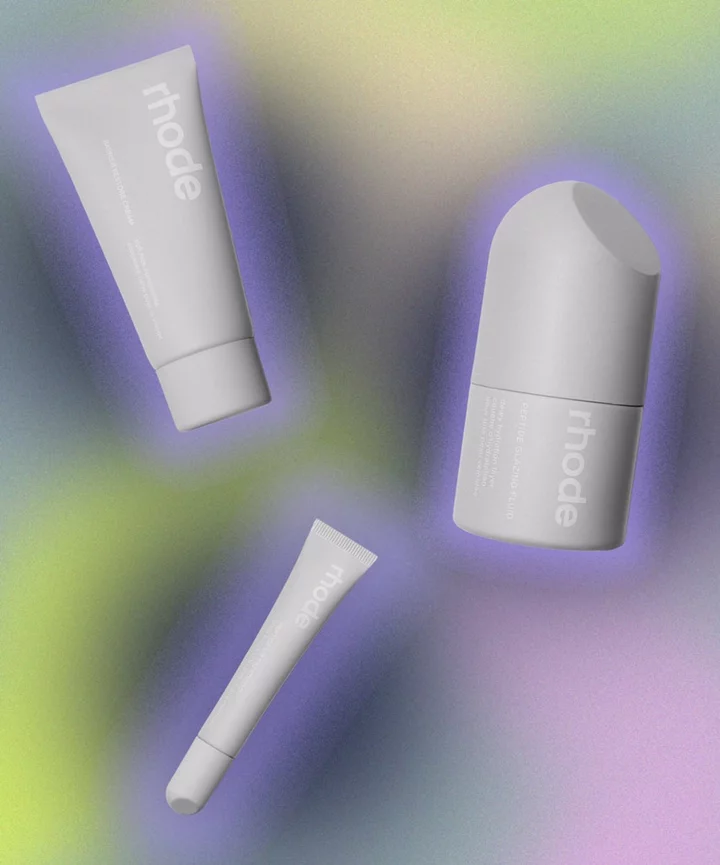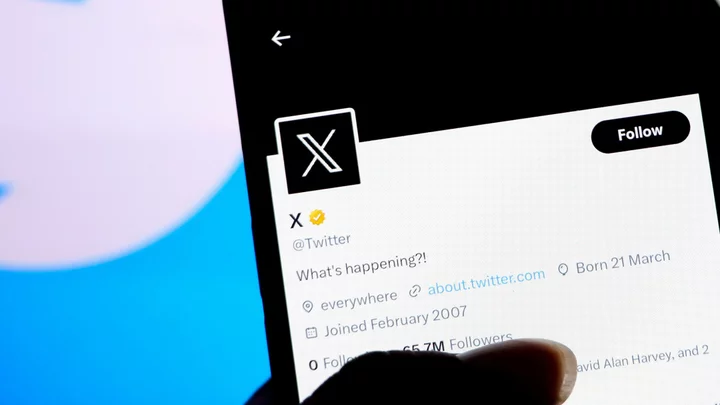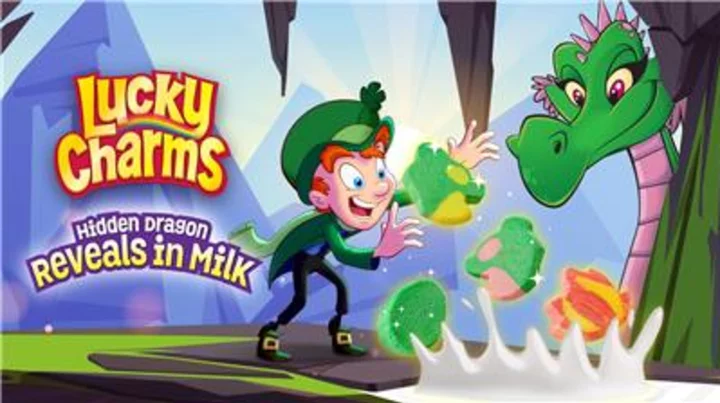While Black directors like Jordan Peele, Ava DuVernay, Ryan Coogler, Barry Jenkins, and Steve McQueen are respected, award-winning auteurs, the film industry hasn’t become that much easier for young Black directors. Black creatives are largely still shut out of filmmaking because of institutional racism, economic hardship, or by simply not knowing the right people. A tightly constructed industry satire, the A24/BBC/Big Deal Films produced series Dreaming Whilst Black, one of the best British series of the year, is now making its way stateside via Showtime, and offers a sharp critique of the systemic obstacles still blocking Black filmmakers.
Adapted from the same-titled online series which became a BBC Three pilot, Dreaming Whilst Black comes from the mind of Jamaican-British co-creator, co-writer, and star Adjani Salmon, with directors Jermain Julien, Joelle Mae David, Koby Adom, and Sebastian Thiel. Though you’d expect the series to be autobiographical, it isn’t. As Salmon shared with The Guardian, the variety of scenarios were culled from the experiences of other Black colleagues working in entertainment. Rather, the familiar aspects of the show speak to the universality of the major and microaggressions common to the diasporic Black experience within a white colonialist world.
SEE ALSO: 'Dreaming Whilst Black' trailer teases the struggles of an aspiring filmmakerTake a scene in the premiere, where protagonist Kwabena (Salmon) offers advice to his white colleague Adam (Alexander Owen) about what film he should watch on a first date with a Black woman. At first, the white guy offers Black-directed Best Picture winners like The Color Purple, Precious, and 12 Years a Slave (all films featuring rape of Black women, and something Kwabena points out aloud). It’s scenes like this, daring, smart, and incisive, that allow Salmon and co-writers Ali Hughes and Yemi Oyefuwa to marry to pop culture references with everyday observations to make Dreaming Whilst Black one of the best looks behind the curtain of the struggle in making Black cinema for mass appeal.
Dreaming Whilst Black delivers a smashing pitch
Adjani Salmon as Kwabena. Credit: BBC/Big Deal Films/Domizia SalusestLeading the series, Kwabena is an aspiring filmmaker working at a soul-crushing career recruitment center. It’s a workplace that is oppressively white. At one point, when he brings out a home-cooked meal at his desk, a white woman co-worker singles him out among the other dining employees and asks him if he could take his aromatic dish into the breakroom. When he enters there, the only other person of color at the company is sitting there with her culturally specific lunch, as well.
When not at his day job, Kwabena stays in the spare bedroom belonging to his friend and cousin Maurice (Demmy Ladipo) and Maurice’s pregnant Nigerian wife Funmi (Rachel Adedeji). There, at night, Kwabena works to get his feature Jamaica Road off the ground. But a few problems keep his film unrealized: he doesn’t have the money to self-produce the film; almost no one wants to give him directing jobs because he doesn’t have any experience apart from his film school degree; his film, an autobiographical tale of his grandparents finding love as part of the Windrush generation, is misunderstood by the white powerbrokers he meets.
But his biggest and most immediate issue is his over-dedication to his day job. That comes to a head when he bumps into Amy (Dani Moseley), a former college classmate now working as an executive assistant for a production studio. Amy offers to connect Kwabena with her studio heads, but he misses the appointment when he decides to stay in a work conference for fear of repercussions. His inability to make the right, hard decision to maintain his personal creative spirit — in a few imagined, surrealist scenes we see Kwabena acting out the correct choice — proves to be his Achilles heel throughout the show.
Black women are key in Dreaming Whilst Black
Dani Moseley as Amy and Babirye Bukilwa as Vanessa. Credit: BBC/Big Deal Films/Domizia SalusestAnother recurrent subplot in the six-episode series involves Kwabena’s girlfriend Vanessa (Babirye Bukilwa). The pair meet when he helps Vanessa retrieve her wig, which gets caught in closing bus doors, and the two begin a torrid, passionate relationship shot with an evocative lens by the show’s cinematographers. Nights filled with watching Gina Prince-Bythewood’s Love & Basketball turn into mornings of sharing a bed and breakfast (their bodies, dappled in golden hues, are beautifully lit in resplendent, honeyed tones).
Their relationship, however, isn’t totally built on honesty. Kwabena sells himself as an already successful filmmaker, who happens to freelance on the side. During their relationship, he works as a food delivery man while he makes futile attempts to network for a big break. The truth of his double life often arises during dates, such as one hilarious scene where he meets Vanessa’s bougie girlfriends for a luxe dinner. While the button of it steals a kicker from a similar sequence in Donald Glover’s Atlanta, the warmth and hijinks of their relationship, as captured in the scene, provides a soothing romantic center to the show’s industry components. It’s therefore disappointing that Vanessa often drops out of the show for long stretches, to the point that she barely exists outside of her relationship with Kwabena.
That isn’t true of all the Black women in Dreaming Whilst Black. We spend considerable time with Amy as she navigates the racial bias at her studio job; despite being qualified, her white boss (Peter Serafinowicz) passes her over for an assistant producer’s role for an under-qualified white colleague. While Funmi and Amy are often around to lend an intelligent ear to Kwabena, Funmi also exists as the headstrong leader of Maurice’s household.
Dreaming Whilst Black thrives on these talented Black women to provide dramatic heft for the show’s more outrageously satirical scenes. They are also amusing and imperative sites for discussions about tokenism, the implicit bias of medical institutions, and the cultural difference between Black folks hailing from the West Indies and Nigeria.
Within the dream lurks a nightmare
Credit: BBC/Big Deal Films/Domizia SalusestOf course, the heart of the show resides in its withering critique of the film industry. Kwabena attempts several avenues to break into the business: he attends networking functions, presents at pitch fests, and looks to the few personal connections he does have to get ahead. They all go for naught. The white powerbrokers are only interested in stories they understand; that is, traumatic stories about young Black men. That story arrives when Kwabena’s cousin Dorvin (Daniel Ogbeide-John), an aspiring rapper, is arrested on drug charges. His screenwriting friend William (Akemnji Ndifornyen) tells him to use the experience to inspire his film. But wouldn’t Kwabena be exploiting his cousin’s plight?
Salmon and his co-writer Hughes wonder aloud whether it’s really possible for Black folks to find creative success without selling their soul and if it’s fair to ask Black filmmakers to have a kind of artistic purity that isn’t expected of their white colleagues. That tension becomes the dramatic fulcrum to the second half of the show, as does the series’ opening scene. Dreaming Whilst Black begins with an elaborate tracking shot that sees Kwabena entering a film set. He is the director he’d always dreamed he’d become. But is this version of him his actual future, and the series is merely a how we got here? Or is this really how Kwabena sees himself, and the series is the aching reality of how white people view him? One route offers hope, the other is an inescapable fate.
The last shot of this season ties together these possibilities when Kwabena’s fantasy becomes a nightmare whose punchline outlines pointedly tragic truths at the core of the witty and urgent Dreaming Whilst Black.
Dreaming Whilst Black is streaming on Showtime in the U.S. and BBC iPlayer in the UK.

